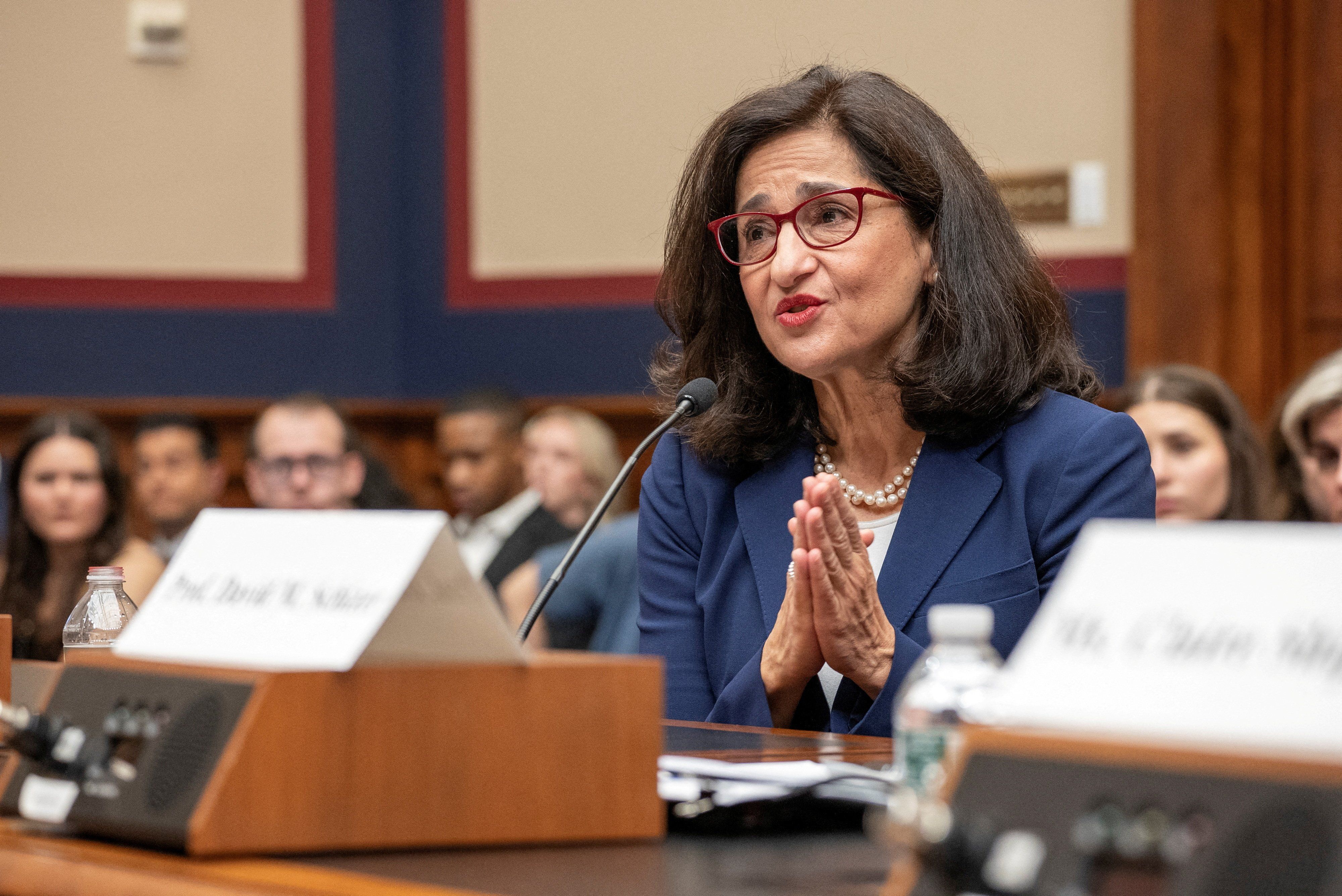Namat “Minouche” Shafik
Columbia University President Namat “Minouche” Shafik announced late Wednesday she is stepping down after just one year in the position, making her the third Ivy League president to resign this year in the wake of Gaza-related protests.
Shafik has faced months of backlash over her handling of campus divisions during the protests last spring. Her testimony before a Congressional panel on campus antisemitism angered many faculty and students, as did her decision to call the police onto campus twice to clear the protests. Meanwhile, others in the Columbia community, including some major donors, accused her of abetting antisemitism.
Unlike the other Ivy League presidents who resigned over the protests, Shafik seems to have stepped down voluntarily, as Columbia’s board has repeatedly said they stand behind her. Shafik, an Egyptian-born British baroness and former vice president of the World Bank, said she is returning to the UK to chair a review of the government’s international development programs.
Hours prior to her resignation, a federal judge ruled that the University of California in Los Angeles cannot allow pro-Palestinian protesters to block Jewish students from campus or school activities. The decision could be a blueprint for Jewish students to bring similar lawsuits against other universities if pro-Palestine protests erupt again this fall.
